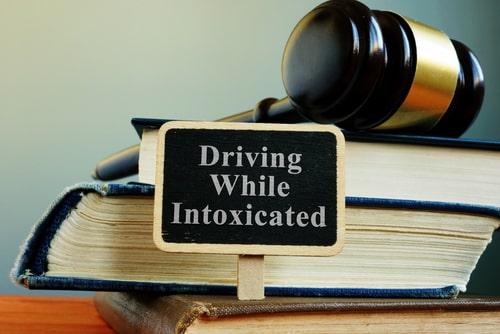What Are the Penalties for DWI Resulting in Injury or Death in Texas?
 Drunk driving is a serious crime, but the specific penalties for driving while intoxicated (DWI) can vary depending on the circumstances of a case. Some of the most serious cases will involve accidents that caused harm to others. If a person is charged with DWI in a situation where they allegedly caused an accident that resulted in someone's serious injury or death, they may face charges of intoxication assault or intoxication manslaughter. Felony charges will usually apply in these situations, and a conviction can result in a prison sentence of multiple years and up to $10,000 in fines, as well as other consequences that can affect a person for the rest of their life. By understanding the specific charges involved in these cases and working with a criminal defense attorney, those who are arrested for DWI can determine how to respond against the charges and how to defend against a conviction.
Drunk driving is a serious crime, but the specific penalties for driving while intoxicated (DWI) can vary depending on the circumstances of a case. Some of the most serious cases will involve accidents that caused harm to others. If a person is charged with DWI in a situation where they allegedly caused an accident that resulted in someone's serious injury or death, they may face charges of intoxication assault or intoxication manslaughter. Felony charges will usually apply in these situations, and a conviction can result in a prison sentence of multiple years and up to $10,000 in fines, as well as other consequences that can affect a person for the rest of their life. By understanding the specific charges involved in these cases and working with a criminal defense attorney, those who are arrested for DWI can determine how to respond against the charges and how to defend against a conviction.
Intoxication Assault
A drunk driving accident can result in a variety of different types of injuries. These can range from minor injuries such as cuts and bruises to severe injuries that may result in permanent disabilities. In cases where a person caused an accident due to intoxication by alcohol or drugs, and someone else suffered serious bodily harm in the collision, they may be charged with intoxication assault.
Texas law defines serious bodily injuries as forms of bodily harm that put someone at risk of being killed, such as severe lacerations that led to significant blood loss. Injuries that led to permanent disabilities or impairments, such as spinal cord injuries in which a person suffered paralysis, will also be considered serious bodily harm. Finally, any injuries that resulted in permanent disfigurement, such as the amputation of a limb, will qualify as serious bodily injuries that may lead to charges of intoxication assault.
In Texas, the offense of intoxication assault is charged as a third degree felony. A person who is convicted may be sentenced to a minimum of two years and a maximum of 10 years in prison. Other penalties related to DWI or the injuries suffered by the victim may also apply, such as the revocation of a person's driver's license or the requirement to pay restitution.
Intoxication Manslaughter
When a drunk driving accident leads to an accidental death, more serious felony charges may apply. A person who allegedly operated a vehicle while they were intoxicated and mistakenly caused someone else's death may be charged with intoxication manslaughter, which is a second-degree felony. If they are convicted, they may be sentenced to between two and 20 years in prison.
Enhanced Penalties
There are some cases where increased charges may apply for intoxication assault or intoxication manslaughter. If a police officer, firefighter, or emergency medical technician who was engaging in official duties was injured by a drunk driver, the offense of intoxication assault will be charged as a second degree felony. Second degree felony charges will also apply if intoxication assault caused traumatic brain injuries that resulted in a persistent vegetative state. If a first responder was killed by a drunk driver, the offense of intoxication manslaughter will be charged as a first degree felony, and the alleged offender could potentially be sentenced to five to 99 years in prison.
Contact Our Fort Worth DWI Defense Lawyer for Intoxication Assault and Intoxication Manslaughter
If you are facing charges for DWI resulting in injury or death in Texas, a skilled and experienced attorney can help you navigate the legal process and determine the best steps to take to achieve a positive outcome in your case. The penalties for intoxication assault or intoxication manslaughter convictions can be severe, and it is critical to have an experienced Tarrant County DWI defense attorney on your side to protect your rights. At The Dameron Law Firm, our lawyer can advocate on your behalf during your case and help you determine the options that may be available to ensure that you can minimize the ways your life will be affected. Contact us at 817-222-0624 to schedule a free consultation.
Sources:
https://statutes.capitol.texas.gov/Docs/PE/htm/PE.49.htm
https://statutes.capitol.texas.gov/Docs/PE/htm/PE.12.htm

 817-222-0624
817-222-0624







